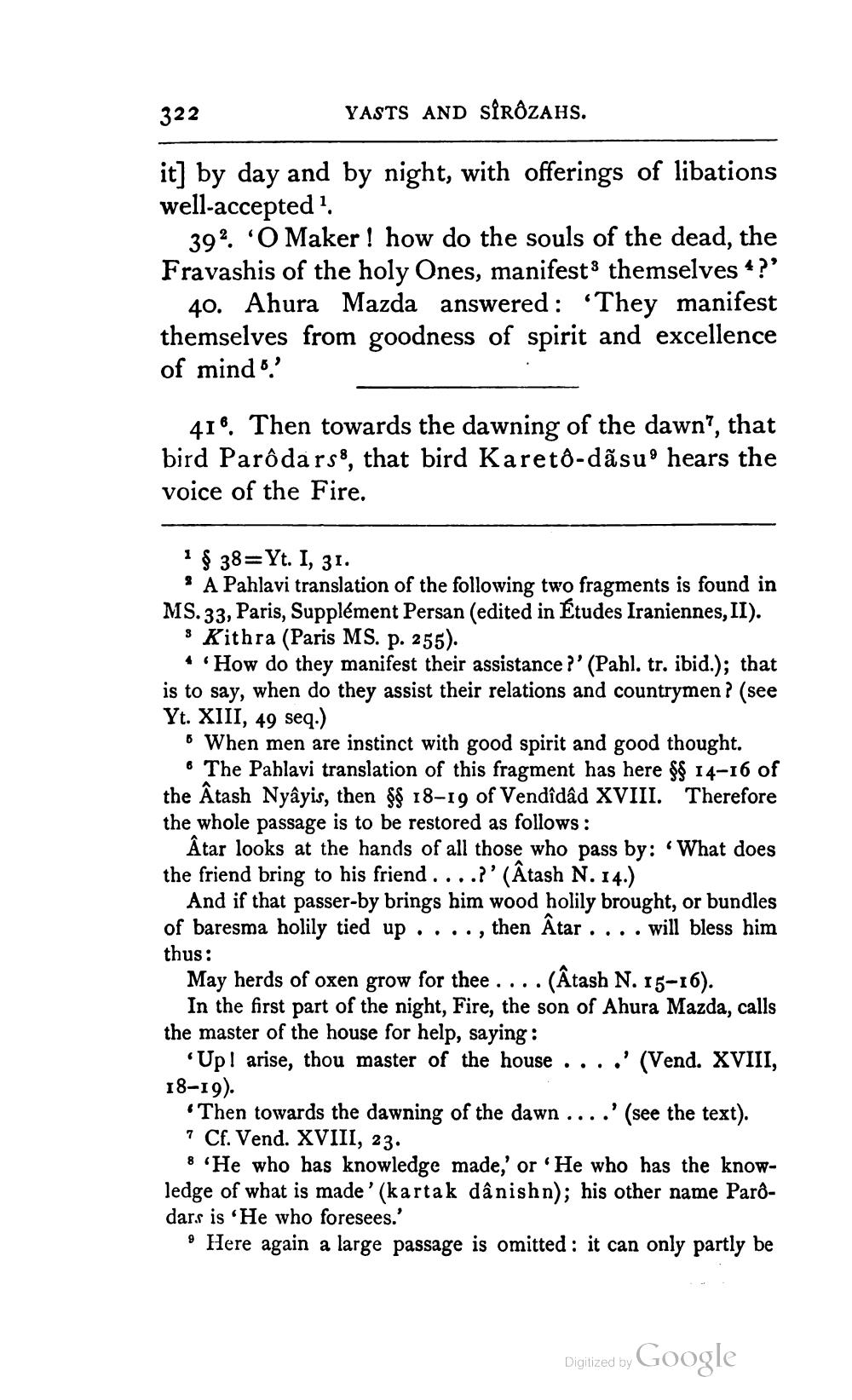________________
322
YASTS AND SÎRÔZAHS.
it] by day and by night, with offerings of libations well-accepted
392 'O Maker ! how do the souls of the dead, the Fravashis of the holy Ones, manifests themselves * ?'
40. Ahura Mazda answered: They manifest themselves from goodness of spirit and excellence of mind.'
418. Then towards the dawning of the dawn”, that bird Parôdars, that bird Kareto-dãsuo hears the voice of the Fire.
*$ 38=Yt. I, 31.
: A Pahlavi translation of the following two fragments is found in MS. 33, Paris, Supplément Persan (edited in Études Iraniennes, II).
s Kithra (Paris MS. p. 255).
4 "How do they manifest their assistance ?' (Pahl. tr. ibid.); that is to say, when do they assist their relations and countrymen? (see Yt. XIII, 49 seq.)
o When men are instinct with good spirit and good thought.
o The Pahlavi translation of this fragment has here $$ 14-16 of the Âtash Nyâyis, then $$ 18-19 of Vendîdâd XVIII. Therefore the whole passage is to be restored as follows:
Âtar looks at the hands of all those who pass by: What does the friend bring to his friend ....?' (Atash N. 14.)
And if that passer-by brings him wood holily brought, or bundles of baresma holily tied up . . . . , then Âtar .... will bless him thus:
May herds of oxen grow for thee .... (Âtash N. 15-16).
In the first part of the night, Fire, the son of Ahura Mazda, calls the master of the house for help, saying:
Upl arise, thou master of the house .... (Vend. XVIII, 18-19).
"Then towards the dawning of the dawn ....' (see the text). 7 Cf. Vend. XVIII, 23.
8 "He who has knowledge made,' or 'He who has the knowledge of what is made' (kartak dânishn); his other name Parodars is 'He who foresees.'
• Here again a large passage is omitted : it can only partly be
Digitized by Google




